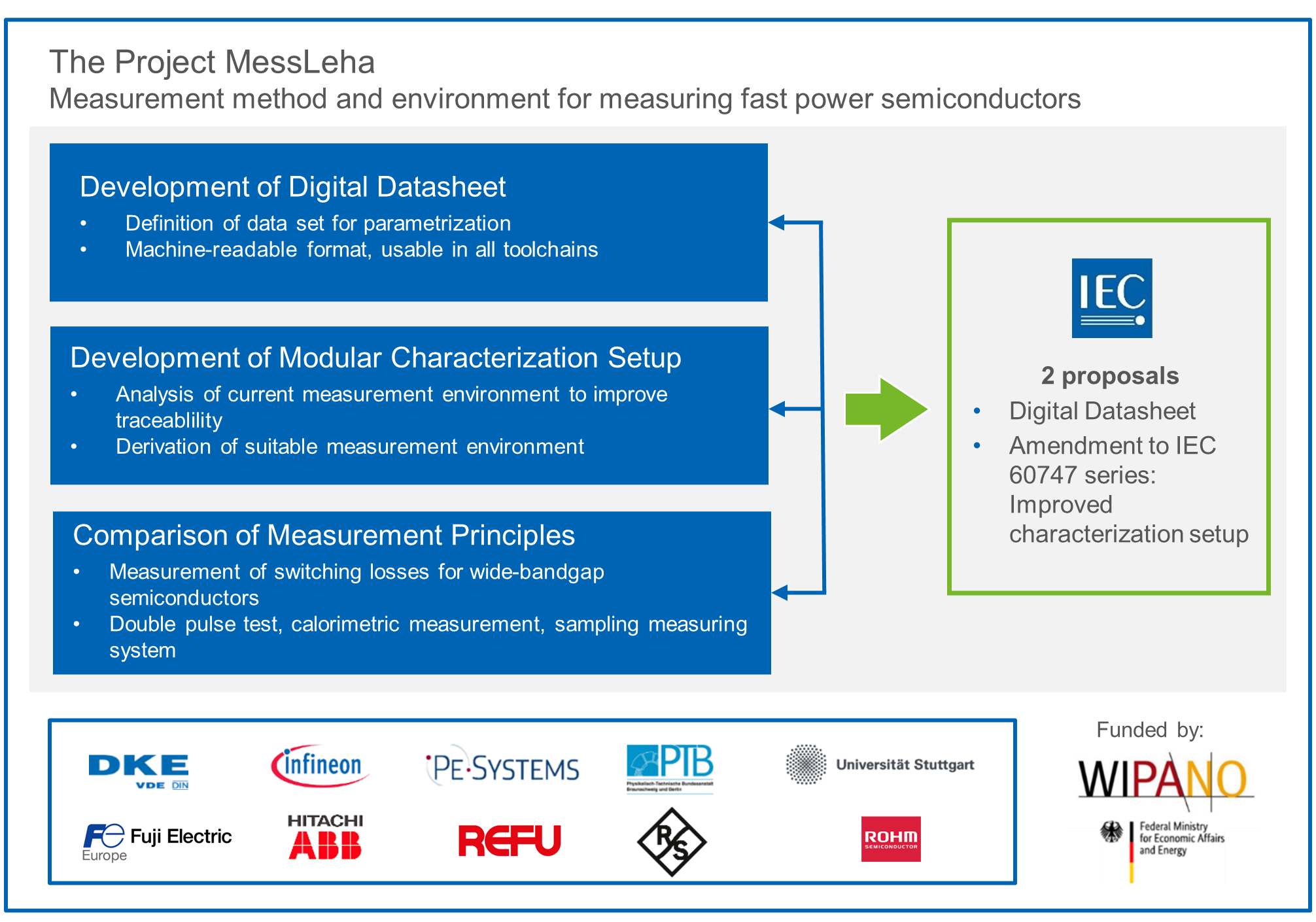Project duration: 01.05.2020 – 30.06.2022
Project partners: DKE German Commission for Electrical, Electronic & Information Technologies of DIN and VDE, Infineon Technologies AG, PE-Systems GmbH, Physikalisch Technische Bundesanstalt, University of Stuttgart (Institute of Robust Power Semiconductor Systems and Institute for Power Electronics and Electrical Drivers)
Associated partners: ABB Power Grids Switzerland, REFU Drive, Rohde & Schwarz GmbH & Co. KG, Rohm Semiconductor GmbH, Fuji Electric Europe GmbH





